What should you do if you are in an automobile accident and what are your rights as a consumer?
Every state has it’s own laws and requirements. Be sure to contact your local NWACA body shop to find out what your rights are in the state you are located in.
-
Q. I was just in an accident and my car is not drivable. What do I do with my vehicle?
A. Towing it to a repair shop is in your best interest. Having it towed to a tow company’s impound lot is not. There is more information under “total loss” about that. It is your vehicle and you have the right to have it taken wherever you want to.
-
Q. Do I have to get 3 estimates when filing an insurance claim?
A. In the state of Washington you are only required to get one estimate, and it is your choice where you want to have your vehicle repaired. Some insurance companies will try and steer you to one of their preferred shops, but this may not always be in your best interest. Not all shops perform the same quality repair. For your own peace of mind, it doesn’t hurt to get more than one estimate. However, it is not required. You may want to consult an NWACA member body shop to find out more information and to make sure you understand the differences in body shop repairs.
-
Q. I sent pictures to my insurance company using my phone, now what?
A. Every repair is unique and a picture will not always show the extent of the damage. Giving an accurate estimate with true numbers is not always possible until your vehicle is inspected and, in some cases, it may need to be disassembled to see the extent of the damage.
-
Q. What happens if a body shop estimate is more than the one from my insurance company?
A. Insurance companies know there may be additional repairs necessary, so there is a system built in to accommodate this called a supplement. Most insurance companies write estimates from pictures instead of an actual person inspecting the damaged vehicle. This now makes supplements a common step in the process of repairing your vehicle. With proper documentation, supplements are added to the repair and in almost all cases are covered by your insurance company. Most of the time, they pay the body shop directly, so that you don’t have to worry about coming up with the money.
-
Q. My insurance company told me that they can’t guarantee auto body shops work. Do I have to go to one of their DRP (Direct Repair shop) to have a lifetime guarantee?
A. This is misleading information. There is no insurance company that guarantees a shops repair. Any guarantee is through the body shop itself. An insurance company is a middle man that pays for the repair on your behalf. We recommend that you consult an NWACA member body shop to find out more information and to make sure you understand your rights and options when choosing a quality body shop.
-
Q. What if the insurance company is telling me where I have to take my vehicle for repairs?
A. THEY CAN NOT. This is called steering, and in most states there is an anti-steering law. In Washington State, steering is illegal. You are allowed to choose which shop performs repairs to your vehicle.
-
Q. What is the difference between a DRP (direct repair shop) and a NON-DRP shop?
A. The difference is a signed contract with an insurance company. Shops that are part of a DRP are usually the shops that are recommended by your insurance company. DRP contracts can vary from shop to shop, sometimes limiting what can and cannot be charged on a vehicle’s repair. Depending on the shop it may affect the quality of the repair. Some shops choose not to be a DRP so they are able to perform repairs, to ensure your vehicle is repaired according to the manufacturer’s procedures. Not all shops are the same. We recommend contacting an NWACA member body shop to find out more information and to make sure you understand the difference in repair shops. This way, you are able to choose a shop that has your best interest and safety in mind.
-
Q. What is ADAS (Advanced Driver Assisted Systems) and how does it affect my repair?
A. You have heard of ADAS systems called Blind Spot Monitoring, Adaptive Cruise Control, Lane Assist, Advanced Braking, among many others, and most newer cars are equipped with one or more of these systems. They can vary from vehicle to vehicle and proper research is needed to understand the steps in repairing your vehicle safely. Not all repairs require attention to the ADAS systems, but if your vehicle is equipped with ADAS, there are additional steps that are needed in the repair process to ensure a repair that will protect you, your family and others on the road. Even removing and reinstalling an ADAS sensor may require calibration, so make sure you look for a shop that understands the importance of these systems, and follows the manufacturers’ guidelines to repair your vehicle correctly. Not calibrating or incorrectly calibrating an ADAS system can cause your vehicles ADAS systems to function incorrectly or not work at all. Protect yourself and others and contact an NWACA member body shop to find out more information about ADAS and to make sure you understand the importance of choosing a shop that has your family’s safety in mind.
My vehicle was totaled, now what?
-
Q. What is a total loss in car insurance?
A. A total loss occurs when your car is damaged badly enough in a crash that it would cost more to repair the car than it would to replace it. A total loss also applies if your car is stolen.
-
Q. What happens when my car is a total loss?
A. A total loss works much like a regular car insurance claim. An estimate is written that reflects the damage and a claim adjuster will meet with you to determine how much you should be paid. Doing your own research for a total loss is in your best interest to ensure you are getting paid the correct amount for your vehicle. There are many times where an incorrect value is presented and accepted by the vehicle owner. Coming up with a value is easy, visit websites like Craigslist, Edmunds, Kelly Blue Book or NADA, find 3-5 several similar vehicles with similar mileage and in similar condition, add the prices up and divide by how many prices you included. That will give you the average cost to replace your vehicle. Also, any recent repairs or upgrades like new tires, transmission replacement, etc. can be taken into consideration when coming up with a value. Would you accept financial advice from someone who owes you money? Contact an NWACA body shop to make sure you are getting a fair settlement.
-
Q. The insurance company wants to have my vehicle moved from the body shop to a holding lot, what should I do?
A. it is recommended to keep it at the body shop. Why? When a vehicle is totaled, the process of getting a settlement can be a back-and-forth conversation which can be time-consuming. Having your vehicle at a body shop will help keep that process short. Once your vehicle is moved to a holding lot the urgency of settling a claim drops off and it can be weeks instead of days before a settlement is agreed upon. Contact an NWACA Body shop to find out more about the settlement process and what steps should be taken during the settlement process.
-
Q. Can I keep the car if it’s a total loss?
A. Yes you can retain your vehicle but typically it is not recommended. Your insurance company has to put your vehicle back to the condition it was in prior to your accident which can push it to a total loss. Every vehicle accident is different and your vehicle may be repaired to make it safe but cosmetically it has a few imperfections, that would be a case to retain salvage of your total loss. We recommend contacting an NWACA member shop if your car is a total loss to find out what your options are if your vehicle is considered a total loss.
More Information
-
Washington state law about total loss settlement
https://apps.leg.wa.gov/wac/default.aspx?cite=284-30-391 -
Great website about the difference in body shops and what to look for when choosing a repair shop
https://stopdrp.com/




